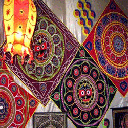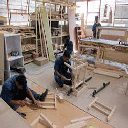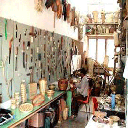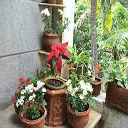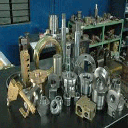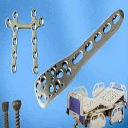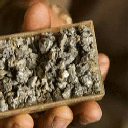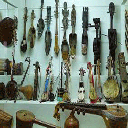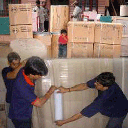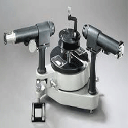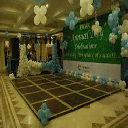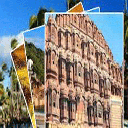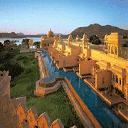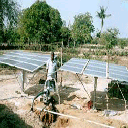Perhaps no other historical monument has evoked as much awareness and admiration from tourists and travellers alike, as the magnificent Taj Mahal - fondly called by people as the ultimate requiem of love, from a great Mughal Emperor to his beloved. So overwhelming is the exquisite beauty and presence of this marble mausoleum that centuries later today, even the very land where it has been located - Agra - has been immortalised as the City of the Taj. Yet, it doesn’t take much for the roving eye to discover that there's more to Agra than just the fabled Taj Mahal. The city is a virtual gateway to a world of discovery… a freeze-frame from a resplendant era that's long since gone by. In the great epic 'Mahabharat' the region of Agra is described as 'Agraban' (an integral part of the Brij Bhumi or the land of Lord Krishna). The latter part of Indian history outlines the origins of Agra to 1475 A.D., when the reign of Raja Badal Singh. However, Agra came into limelight during the rule of Afghan King Sikandar Lodhi - who had made it the capital of his empire.Later in 1526 A.D., the Mughal Emperor Babar took upon himself the task for rendering Agra, a unique character and beauty of its own. The visionary that he was and a great patron of the arts, Emperor Babar brought in a change in the culture and life-style among the people of Agra, which then brought forth some of the finest craftsmen, artists, statesmen, warriors and nobility, this part of India had ever withnessed. The golden age of Agra's history, thus began to set in. The next few hundred years of Agra witnessed the rise of the pomp and pageantry of three great Mughal monarchs - Emperor Akbar, Jehangir and ShahJahan - all of whom lavished on this fabled city, their love and riches immeasurable to transform the land into one of the great centers of art, culture, learning and commerce. Much of the city's impressive past lives in evidence even today, in the hunting presence inside the monuments, the majesty of the buildings, the exquisite arts and crafts and not to forget, the lure of an exceptional cuisine… all, cherished as priceless legacies of a nostalgic past. The older city of Agra has impressively retained much of its resplendent history… captivating every visitor with fond memories to take back home. Today, luxury and modern convenience also exist adjacent to tradition - luxury hotels, shopping malls and plazas, wide avenues and a superb choice of venues for recreation, business, sports, pleasure, education and the arts.
Taj Mahal Taj Mahal was built by a grief stricken Emperor Shahjahan as a memorial to his beloved wife Mumtaz Mahal. A world-renowned wonder, Taj Mahal sits pretty on the northern side of this green paradise. It looks the same from all the four sides! The Quranic inscriptions on its four entrances are carved in such subtle increase in size that may appear to be of the same size from top to bottom! Shahjahan invited master craftsmen from as far as Italy and Persia to help design his ambitious tribute to love. The Taj Mahal is phenomenal not in the beauty alone that shines forth, but in the deep planning and design that went into its making, and the ethereal idea of immortalizing love. Delicate carvings in marble vie with gorgeous pietra dura for attention. Lapis-lazuli, Cornelian, Mother of pearl, Agate and Emerald are inlayed in floral and geometrical patterns in the marble itself. This enchanting mausoleum, on the bank of river Yamuna started in 1631 it took 22 years to complete with the help of an estimated 20000 workers. Open: All days except FRIDAY Timings: Sunrise to Sunset. Distance: 9.7 Kms. (East gate) Ph.: 2330498 The Agra Fort Ph.: 2960457 The great Mughal Emperor Akbar commissioned the construction of the Agra Fort in 1565, A.D. although additions were made till the time of his grandson Shahjahan. The forbidding exteriors of this fort hide an inner paradise. There are a number of exquisite buildings like Moti Masjid - a white marble mosque akin to a perfect pearl; Diwan-I-Am, Diwan-I-Khaas, Musamman Burj - where Shahjahan died in 1666 A.D. Jahangir's Palace; Khaas Mahal and Shish Mahal. Open: Sunrise to sunset. Distance: 4.7 Kms. Chini Ka Rauza Mausoleum of Shahjahan's prime minister and Persian poet Afzal Khan Aalmi entitled "Maula Shukrullah, Shirazi" buit in 1635, exhibits fine use of glazed tiles. A certain raiser to an exotic Persian art style, which finds itself a home in Agra. Open: Sunrise to sunset. Distance: 11 Kms. Taj Nature Walk A beautiful natural forest cover spread over 70 hectares of area just 500 mts away from the eastern gate of Taj Mahal . An excellent view of the Taj can be found from the different mounds of the park. Flora & Funa of different species are found here. Distance: 9.5 kms. SAMADH OF SOAMIJI MAHARAJ It is a tribute to the founder of Radha Swami faith. Devout followers believe the service, purifies the soul. At soamibagh their services bears fruit in an edifice as spectacular as the Taj Built in white and colour marble, it is continuously being decorated for more than 100 years now with extra-ordinary feast in stone and gems. Distance: 10 Kms. RAM BAGH One of the earliest Mughal gardens, believed to be laid out by Mughal Emperor Babur, the founder of Mughal dynasty. It is said that Babur was temporarily buried here before being taken to Kabul in Afganistan. Open: Sunrise to sunset. Distance -11 Km Distance: 9.2 Kms. MEHTAB BAGH Mehtab Bagh is located on the left bank of river Yamuna opposite to the Taj Mahal. The garden complex is a huge square measuring approximately 300m X 300m and in straight alignment with the Taj Mahal. The excavation has revealed a huge octagonal tank on the southern periphery : baradaris or pavilion on the east and west: a small octagonal tank at the center and a gateway at the northern wall. Distance: 14 Kms. Open : Sunrise to sunset. ITIMAD-UD-DAULA'S: (Baby Taj) Tel: 2280030 This exquisite marble tomb was made by Emperor Jahangir’s queen, Nurjahan , in the memory of her father Mirza Ghias Beg during 1622-1628 A.D. Built entirely in white marble and inlaid with semi-precious stones, their mausoleum on the bank of the Yamuna River, exhibits a strong Persian influence. Distance-11Km Open: Sunrise to sunset. SIKANDRA Tel: 2641230 It is the mausoleum of Emperor Akbar. It represents his philosophy and secular outlook, combining the best of Hindu and Muslim architectures in a superlative fusion. Completed in 1613 A.D., it is one of the well preserved monument. Distance: 13.7 Kms. Open: Sunrise to sunset. MARIYAM’S TOMB This unique tomb in red sandstone was built in memory of Emperor Akbar’s wife Mariyam Zamani. The tomb has some exceptional carvings. Distance: 14.5 Kms. Open: Sunrise to sunset. JAMA MASJID The building with rectangular open forecourt was constructed in 1648A.D. by Shahajahan’s daughter, Jehanara Begum of particular importance is its wonderful assimilation of Iranian architecture. Distance: 7 Kms Open: Sunrise to sunset. TEMPLES Mankameshwar Mandir, Rawli, Balkeshwar Mandir, Prithvinath Mandir, Rajeshwar Mandir , kailash Mandir, Renuka Dham (Shanidev Tample). BAUDDHMATH Buddha Bihar, Agra Fort Bus stand (Monastery) GURUDWARAS Guru ka Tal Gurudwara, Sikandra Mathura Road, Maithan Gurudwara, Fulatti Hathighat Gurudwara, CHURCHES Cathedral St. Peter's, St. Patricks, Baptist Church, Sai Ka Takia, Catholic Church,Sadar Bazar MOSQUES Jama Masjid near Bijlighar, Taj Mahal, Shaikh Salim Chisti Dargah, Fatehpur Sikri JAIN TEMPLES Digambar Jain temple, Taj Ganj, Tirthadham, Mangalayatan, Sasni, Aligarh, Chintamani Parshwanath, Roshan Mohalla, Dadabari, Shahganj.


